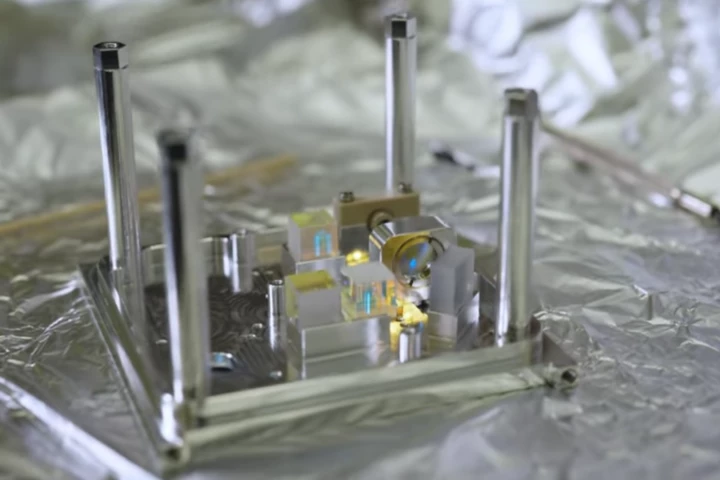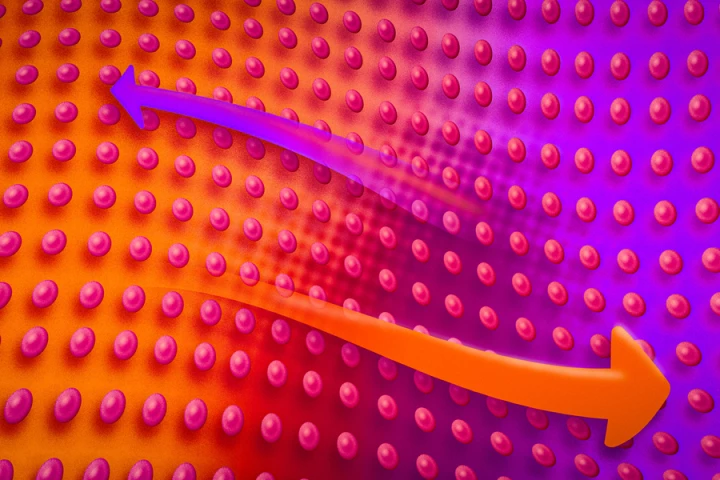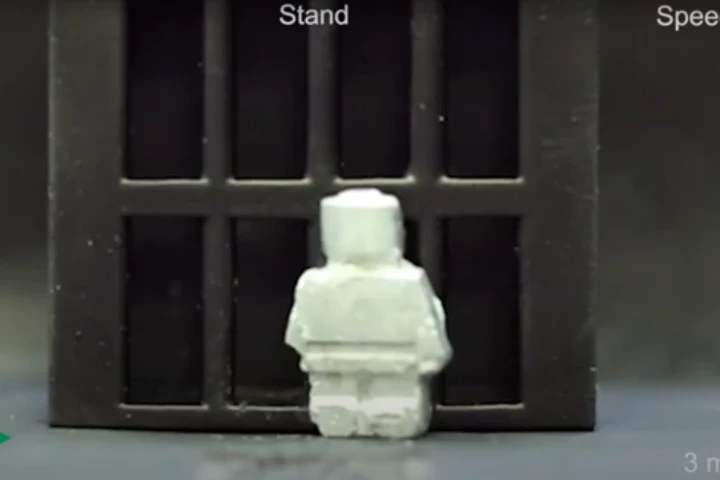Matter
-
Water ice is a far more complex substance than we might assume. Scientists have now created an exotic new form of ice in the lab, known as “plastic ice VII.” This strange version could exist naturally on other planets and moons in our solar system.
-
Dark matter is thought to outnumber regular matter by a factor of five to one – so why can’t we find the stuff? A new study proposes looking for it from space, using a satellite containing a levitating piece of graphite and a laser.
-
Under the right circumstances, electrons can actually “freeze” into a bizarre solid form. Now, physicists at Berkeley Lab have created and taken the first ever direct images of this structure.
-
Physicists have created the heaviest clumps of antimatter particles ever seen. Known as antihyperhydrogen-4, this strange stuff could help us solve some of the most puzzling physics mysteries.
-
Despite a century of searching, dark matter remains a no-show. A new paper proposes an alternative hypothesis, showing how gravity could exist without mass and produce many of the same effects we ascribe to dark matter.
-
Time crystals are a strange state of matter with properties that sound impossible, but they have been created. Now, German scientists have made one that lasts 10 million times longer than in previous experiments.
-
Scientists at MIT have directly captured signs of “second sound” in a superfluid for the first time. This bizarre phenomenon occurs when heat moves like sound waves through an unusual state of matter.
-
Astronomers have picked up a radio signal from eight billion years ago, meaning it’s traveled across the observable universe to get here. Thanks to its extensive experience in the cosmos, the signal can actually help us track down “missing” matter.
-
Gravity's effect on antimatter has been a point of disagreement between physicists. New research may have settled the debate by finding that antimatter is affected by gravity in the same way as matter, ruling out the existence of repulsive 'antigravity.'
-
Astronomers have put together one of the most comprehensive maps of all the matter in the universe. The huge undertaking hints at a slightly smoother universe than we thought, suggesting that something might be missing from our models.
-
Ice and water aren't very exciting to most of us, but they’re super strange from a scientific standpoint. Researchers have now discovered a brand new type of ice that’s described as being a true “snapshot” of water, and may be found on alien worlds.
-
Researchers have created a new class of robots that can shift between solid and liquid forms on demand. In a series of tests, these new bots could change shape to run obstacle courses, carry objects, or even escape from a jail cell like a Terminator.
Load More











